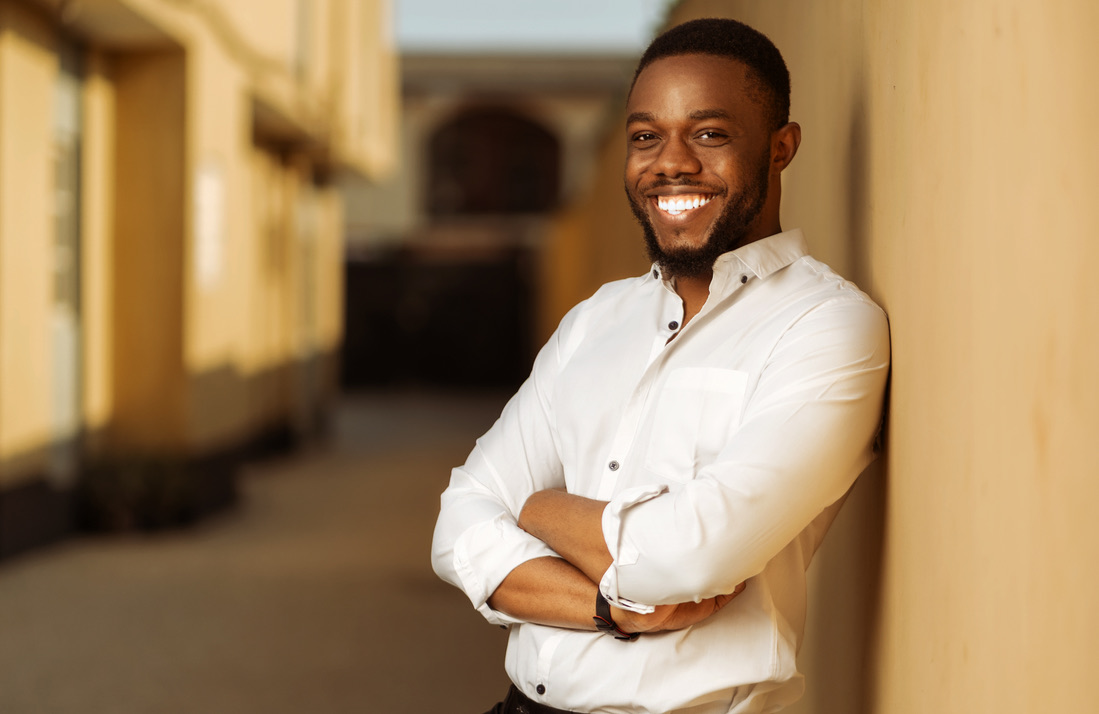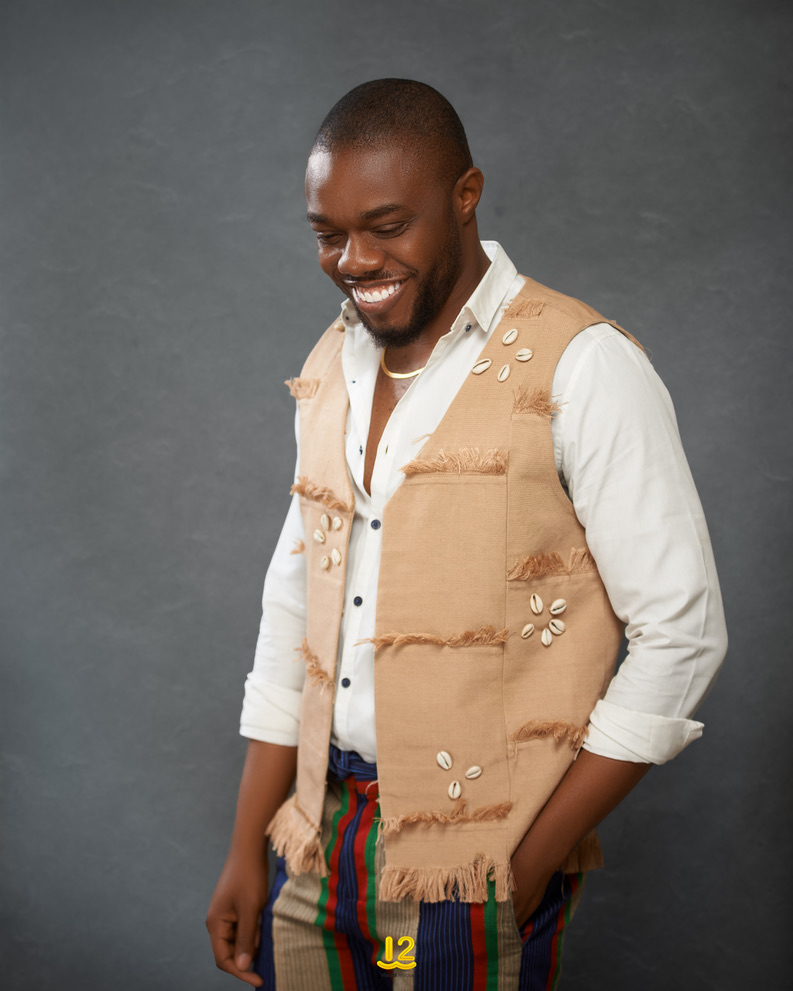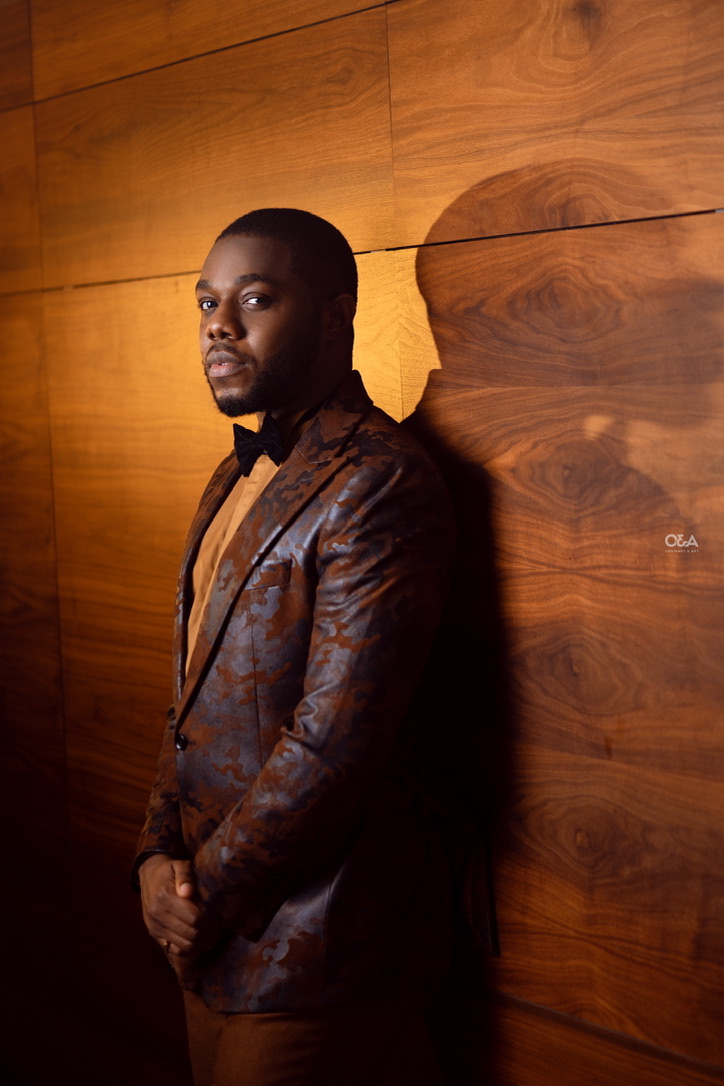Abdul Tijani-Ahmed is a face you probably recognise from the TV series “Ricordi.” As an actor, writer, and producer, he has made a significant impact across multiple industries. His contributions have not gone unnoticed, as he has garnered several prestigious award nominations, including the Future Awards Africa. Recently, two projects he was involved in, “Ricordi” and “Brotherhood,” won big at the Africa Magic Viewers’ Choice Awards (AMVCA).
In this interview, we had the pleasure of delving into Abdul’s experiences as a writer, his collaborations with Diane Russet, and his insights into what it takes to become a filmmaker. Abdul also reflects on his journey, highlighting the importance of consistency and the role of divine grace in his success.
***
Hi Abdul Tijani-Ahmed! Two projects you wrote, one of which you acted on, Ricordi and Brotherhood, won big at the AMVCA 2023. What did you add to your stew? What’s the secret?
Consistency. The ingredients for the stew are things I’ve picked up over the years while consistently learning and growing in the industry. And of course, we cannot deny the grace of God. That’s all I can say.
You wrote and acted in Ricordi. Did you at any point consider casting another actor to portray the character you had written for yourself? If so, what factors influenced your decision-making process?
A lot of people have that misconception. That character wasn’t written for me; in fact, I did not want to play it. We tried to get other actors, but it did not work out, plus it took a lot of convincing from the executive producer and director before I agreed to act in the series (which was a web series then) before it transitioned to TV and Showmax.
What’s your process for developing characters? Is there a plan you use, or is it a natural evolution as you write?
Oh yes, there is always a plan; the plan is to make the characters as well-rounded as possible because human beings are not one-dimensional. I try to drop every atom of judgement towards characters, and I have to be able to justify their actions, no matter how bad they are. That way, I can write from their perspective. The moment a writer starts to judge a character, it shows in the writing.
Has your writing process changed since you first started?
Of course! I used to just write without a plan. I’ll get an idea, think about it for a few days, and then just open my laptop and start the screenplay. I don’t do that anymore. Now I like to be sure of where I am headed. I read stuff I wrote when I started, and I’m like, “Damn” (covers face). While I can proudly still say they are damn good stories, now I just think I write better. But isn’t that a general thing, though? The more you do, the better you get.
Take us through your process of writing a film.
Lately, I have been writing a lot of films that are not my original ideas, which is more difficult for me than when the idea is originally yours. Regardless, the first thing I do is watch films and read scripts from the genre I want to write. Then take a break and just chill for a few days, but while doing random stuff, I’m still thinking about the story or the idea in my head. When I think I am ready, I write it all down and move things around like a jigsaw puzzle. Writing is mostly rewriting, so after I write, I keep tweaking and making changes until I feel it’s good enough. But I also have to say this depends on the time I have; there are projects where time is very limited and things have to be done faster. I still find a way to run through some of my processes but within a shorter time frame.
You also wrote Diane Russet’s film “There Is Something Wrong With The Bamideles?” What would you say is your favourite thing about working with Diane?
Her creativity and passion for storytelling. She’s not just someone who wants to make films; she wants to make films for a reason. To pass a message, to teach, and to shed light on certain topics that might be considered taboo. What’s Wrong with the Bamideles for example, is about postpartum psychosis, amongst other things. Each time Diane calls (which can be at 2 a.m., lol) to say I have an idea, I know it’s something that will challenge me, and it’s always fun.
What is the best way, as a writer, to communicate your vision to your cast and crew?
By writing it in the simplest way possible. While grammar is good to know as a writer, it’s important to realise we are not writing scripts for ourselves. It has to be simple enough for the crew member with the least educational qualifications to understand. Also, give room for everyone involved to show their skills and be creative as well. Do not box everyone in with your ideas alone; the film is a collaboration at the end of the day, and the script should be a guide.
Acting or writing?
Mehn! It’s really hard to pick. I love both for different reasons.
What advice would you give to aspiring screenwriters?
Keep writing, but don’t just sit behind computers thinking the work alone will take you far. Get out there and put a face to the name; writers should have a brand too. Build one.
What is the most important ingredient to becoming a great filmmaker?
It sounds cliche, but it’s passion and consistency. Filmmaking is hard; don’t let anyone deceive you. It’s stressful and hard. But it’s the passion that keeps you going consistently until you become great.
What’s your writing routine like? When you experience writer’s block, how do you overcome it?
These days I find myself writing more at night; I sort of touched on my process and routine earlier. Once I have a cold soft drink in hand, I’m good to go! And when I get a block, I just stop and do other things. Watch a movie, gist with my friends, go out for lunch or dinner. I just live my life till I get over it (lol). I don’t stress about it because it will just make things worse.
What are the three things you are most grateful for?
My family, especially my mom, has constantly encouraged me to do what I love since I was a kid and told me I would be great at anything. Now that I am older, I realise how much confidence that instilled in me.
My friends, whom I grew up with in the industry. You are who you surround yourself with. And of course, the talent(s) God has blessed me with.
So what’s been happening with Abdul Tijani Ahmed? What have you been doing, or is there any project you’re currently working on?
I’m working on a lot of stuff, some of which I can’t talk about yet. But a few of them include “Insecure,” a feature film I produced, which is coming to cinemas soon. “Where The Heck Is My Period,” a documentary on PCOS I wrote and produced, should be coming to a streaming platform soon.
Then there is the new season of “Skinny Girl in Transit,” which I wrote and produced as well. Working again with Diane on a few projects too. I am currently writing something for Showmax with a group of very talented writers that will be announced soon. That’s just a few really exciting times ahead, so follow me on social media to get regular updates on projects I am working on.
The post Abdul Tijani-Ahmed Reveals His Secret Ingredient for Success, Writing ‘Brotherhood’ Script & Acting in ‘Ricordi’ appeared first on BellaNaija - Showcasing Africa to the world. Read today!.
from BellaNaija https://ift.tt/PjBTqUe
via IFTTT



